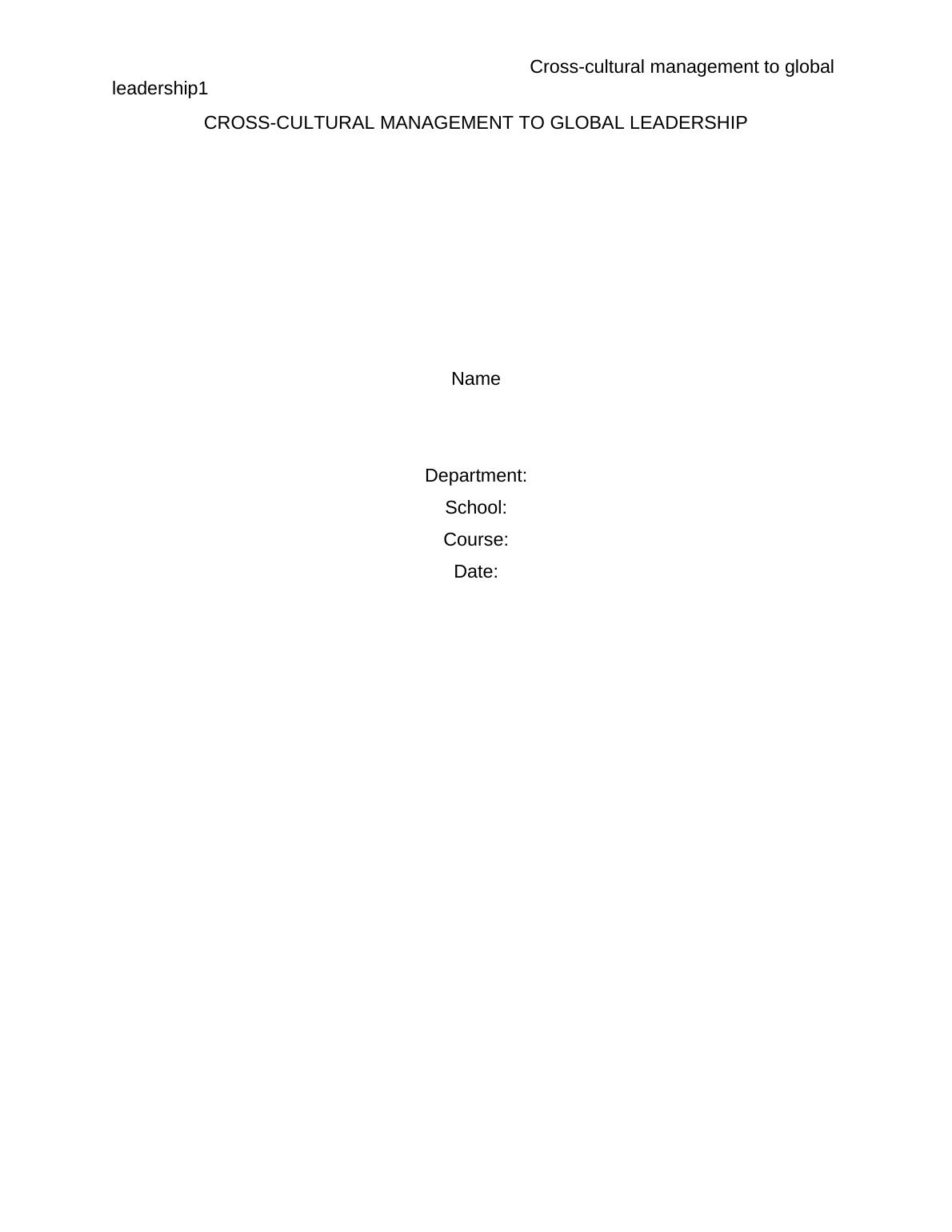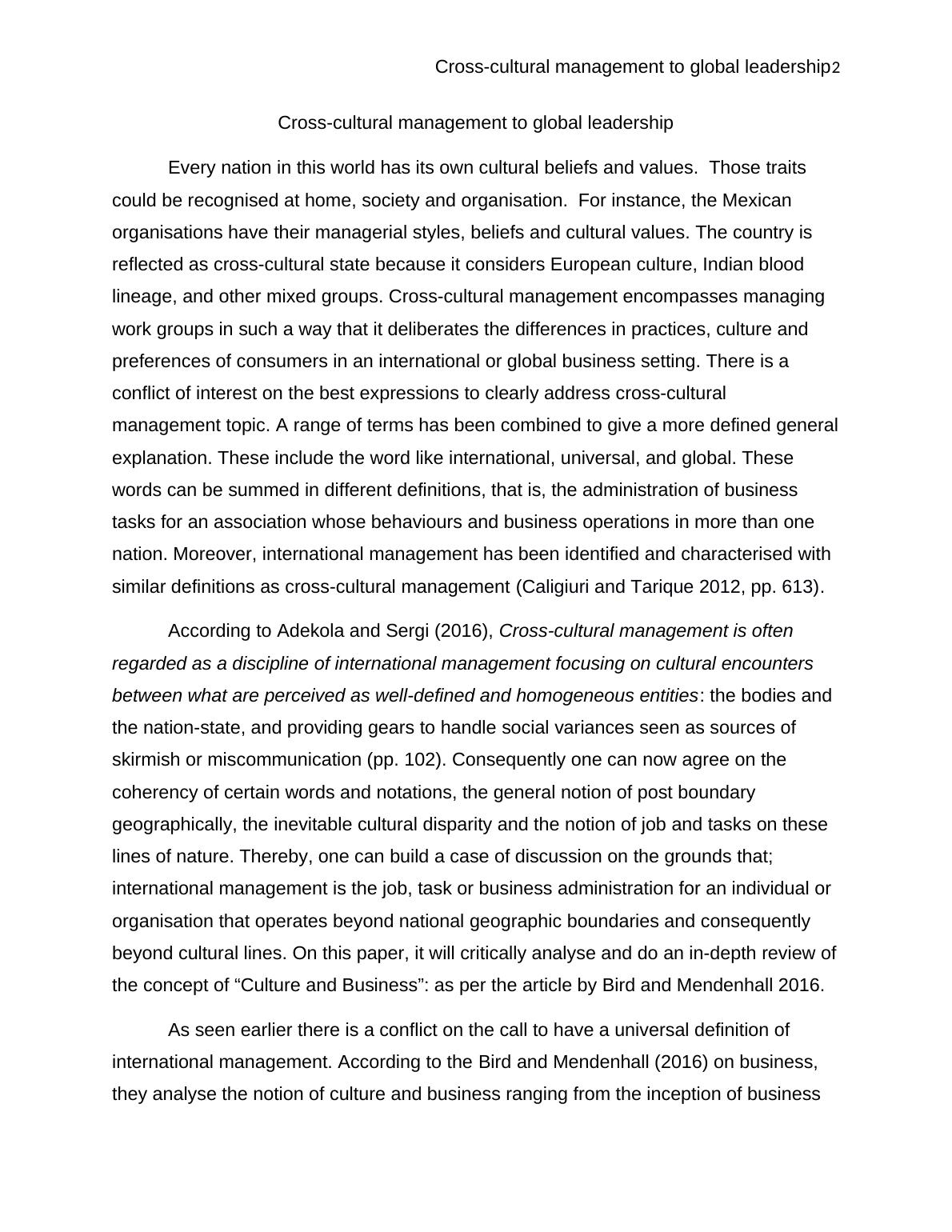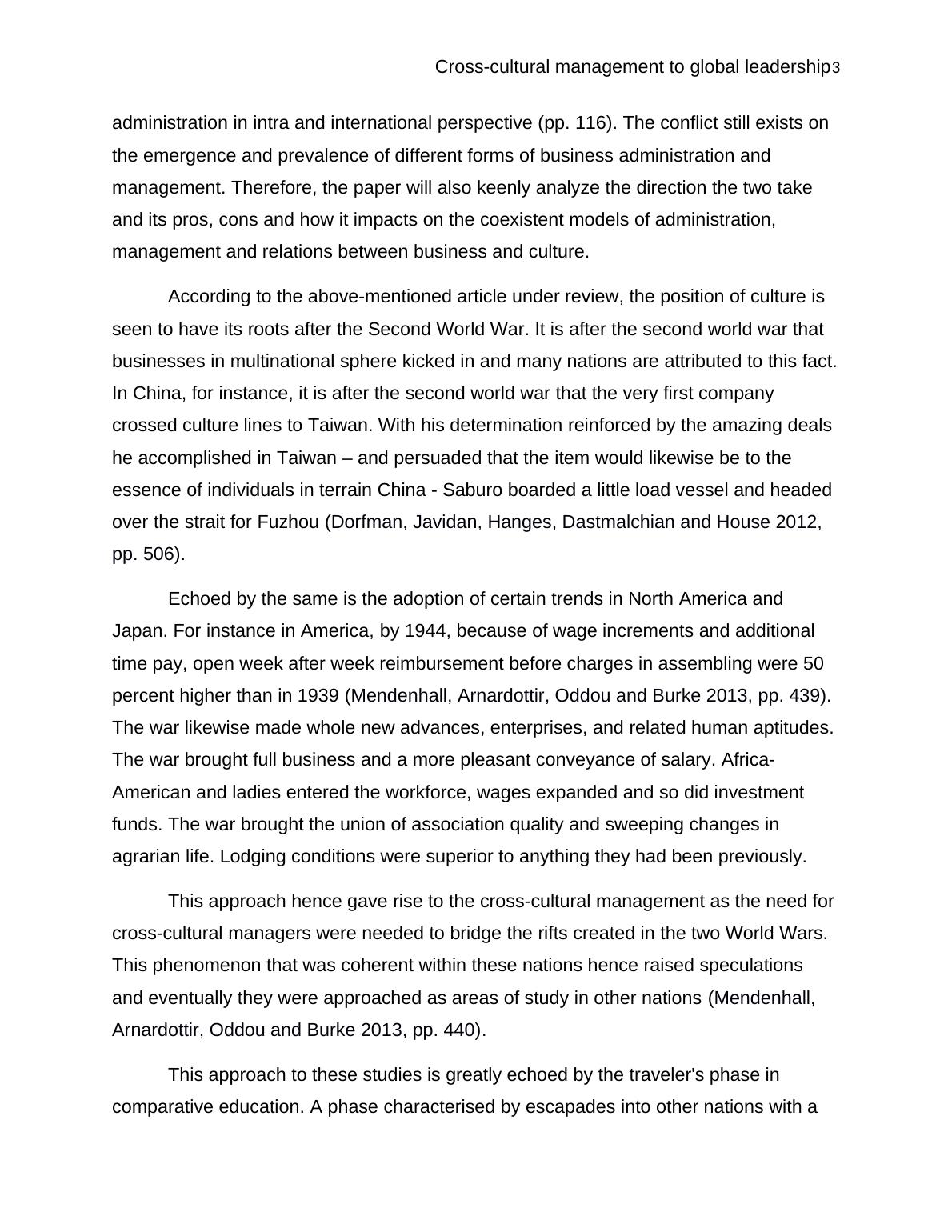Cross-Cultural Management to Global Leadership
10 Pages3290 Words329 Views
Added on 2021-05-31
About This Document
Cross-cultural management to global leadership1 Cross-cultural management to global leadership2 CROSS-CULTURAL MANAGEMENT TO GLOBAL LEADERSHIP Name Department: School: Course: Date: Cross-cultural management to global leadership Every nation in this world has its own cultural beliefs and values. According to Adekola and Sergi (2016), Cross-cultural management is often regarded as a discipline of international management focusing on cultural encounters between what are perceived as well-defined and homogeneous entities: the bodies and the nation
Cross-Cultural Management to Global Leadership
Added on 2021-05-31
ShareRelated Documents
End of preview
Want to access all the pages? Upload your documents or become a member.
Culture and Business Assignment PDF
|9
|2472
|130
Article Review on Cross-Cultural Management
|9
|2538
|492
Cross-Cultural Management Assignment (PDF)
|9
|2197
|70
Global Leadership and Cross-Cultural Management
|8
|2437
|322
CULTURE IN INTERNATIONAL BUSINESS
|10
|2812
|14
Cross Cultural Management in Business Assignment
|10
|2621
|28



